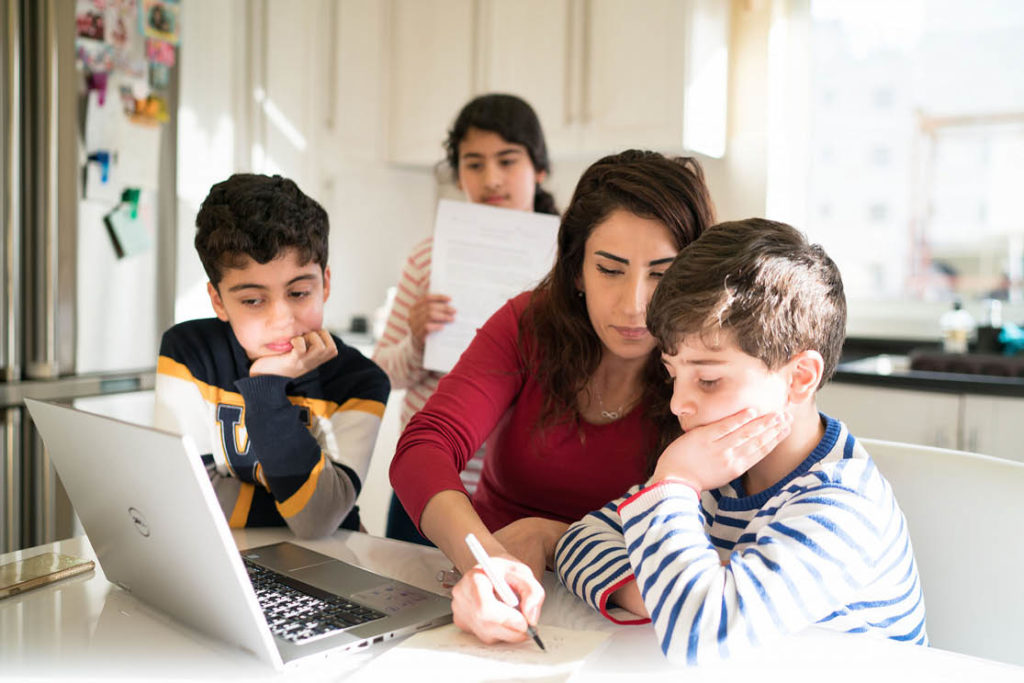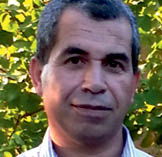I am not sure if “telepathy” is the right term here. It is March 10 as I write this article, and I am hoping against all the odds that by the time you read it, life will have returned to normal with minimum damage and no loss of lives. Teachers and principals had been called to meet on March 10 to look into ways to minimize the detrimental effects of the ongoing disruption of education, in place for almost a week. The meeting was canceled last night, however, and plans have been put on hold. Earlier in the day, I contributed to a regional Twitter thread*1 to discuss options for homeschooling and EdTech (educational technology) among teachers, administrators, and IT professionals. This was followed by a LinkedIn post,*2 before I received a call from TWiP’s publisher – not to mention the many others on social media platforms with too weak a signal and too much noise – who invited me to write this article. The pressing question is simple but painful: Are we ready for distance learning?
A number of people have addressed the issue of readiness, and some have compared it to the Y2K bug twenty years ago*3 (the prediction that computers would fail on January 1, 2000, because years in the registration of dates were stored in two digits), indicating that our actual readiness may be exaggerated. Efforts have been reportedly made by individual teachers and schools to provide some form of online instruction should there be a suspension of classes. Universities have been somewhat prepared in advance, thanks to – not literally! – the siege during the last Intifada that forced them to utilize distance learning through primitive learning-management systems.
The Palestinian Ministry of Education utilizes a school management information system (SMIS)*4 and has begun to consolidate available resources and programs under one umbrella, the Palestinian Educational Portal.*5 Private schools have initiated efforts on their own as well, and higher education institutions have started to leverage their online-learning management systems to reduce the impact of a lengthy educational disruption. Some private-sector offerings are also taking shape. The question is: Will this work?
There are several crucial ingredients that are necessary for distance (online) learning to succeed, some of which can be bought for money in addition to time, whereas others cannot be purchased. The pillars essential for success include a technical infrastructure with connectivity, as well as educational content, capacity (among both teachers and pupils), educational user experience (including pedagogy; the availability of devices such as mobile phones, computers, and laptops; channels that provide content in Arabic language; and the support of learning processes), ways to carry out assessment, and the will to learn (learning culture). I will focus on the K–12 system here, as higher education institutions vary in their readiness and have a certain degree of autonomy in this area.

The necessary infrastructure includes servers and educational platforms with the ability to host, discover, and serve educational content with an acceptable scaling performance (the ability to serve many concurrent requests). This can be achieved through cloud computing and network management by local service providers. Connectivity is achievable in Palestine as well, as most homes are connected through landlines or via mobile data (connectivity can also be subsidized or provided freely for educational resources, in addition to utilizing PIX – Palestine Internet Exchange). We are still struggling with the other ingredients, however. Content is being assembled ad hoc from various sources and lacks coherence, consistency, and coverage (some well-structured efforts are being made by Rawafed and Birzeit University’s learning objects). Most teachers and students have not been trained in administering or receiving online education (not to mention primary school kids). Educational content and resources lack proper planning and consideration for educational pedagogy, personalized learning, or educational support and ways to foster engagement (multimedia and feedback). There are no built-in assessment tools, and pupils lack the will and culture for educational responsibility and self-learning (most students literally hate school and prefer playing useless games online). Primary education pupils lack the basic capacity as well; they require extra efforts for self-direction and learning. With the current situation of fear, lack of resources, and life under occupation, we are not expecting to be ready overnight, and there should be no denial of this reality. Focus on the twelfth grade may be a good target to start with, as the other grades can shift classes into summer (with minimum effort to keep educational continuity and affiliation).

Even though distance education is being imposed on us for the second time now as a necessity rather than an option, it is one last opportunity for us to roll up our sleeves and get ready. For it to succeed, online education should be a choice with all ingredients in place. In the era of the fourth industrial revolution and the future of work, the data economy is becoming a new trend, and AI-enabled (artificial intelligence) products and services are widespread, including in the field of education. Investing in EdTech is a priority, with the need to focus more on problem solving and non-routine digital skills to replace the current curricula and approach. Even if we are not fully ready for formal learning, there is a lot to learn, and we must spend our time doing useful things, as free and open resources are abundant.
In occupied Palestine, education is a strategic asset and a source of national pride. Yet, the educational process is not a top priority in terms of budgeting and resource allocation. Traditional curricula, inferior learning environments, students’ and parents’ indifference, and even the social status of the teaching profession add more insult to injury. This weak structure is easily exposed at difficult times.
There is a shortage of quality Arabic content and educational resources, including MOOCs (massive open online courses) and online platforms and channels. The lack of open educational resources and open data is also an issue. Traditional education is becoming more expensive and harder to scale. This is a golden opportunity for entrepreneurs, content creators, investors, and educational authorities to join efforts and excel locally, regionally, and internationally. Students and parents should also take seriously the educational process and the preparation for future careers. This is not a time for pointing fingers, making fun, or spreading rumors and tasteless jokes. Uniting and integrating efforts, solidarity, and caring for each other is the way forward. It is mentioned in the Qur’an (2:216): “… but perhaps you dislike something and it is good for you ….”
*1 #Edtech start-ups in MENA: share your favorite Or, what are your kids now using for home-schooling? Please share #tech #education #SchoolsOut, available at https://twitter.com/__racha/status/1237238164240113664.
*2 A call for online resources in Arabic language; for more information, please visit https://www.linkedin.com/posts/bassemnasir_with-all-school-closures-crowd-sourcing-activity-6643140899943567361-6ZVI or https://www.linkedin.com/posts/akhooli_aepaesaesaehaesaeyaetabraehaeuabraeqaehaex-activity-6643806389271576576-d9Rb.
*3 Omar Al-Sahili, “How can we learn from the Y2K problem when dealing with the Corona virus” (in Arabic), available at https://www.linkedin.com/pulse/%D9%83%D9%88%D8%B1%D9%88%D9%86%D8%A7-2020-%D9%88%D9%85%D8%B4%D9%83%D9%84%D8%A9-%D8%A7%D9%84%D8%B9%D8%A7%D9%85-2000-omar-al-sahili/.
*4 Palestinian eSchool Portal (in Arabic), available at https://eschool.edu.ps/.
*5 The Palestinian Educational Portal (in Arabic), available at
https://www.it-mohe.com/.


